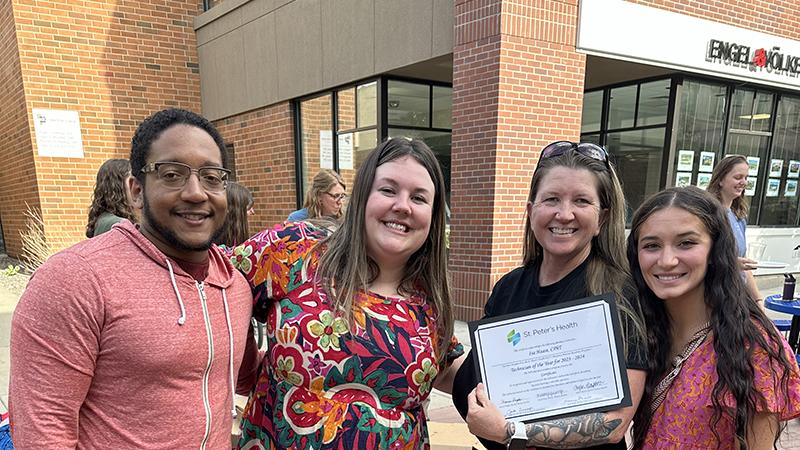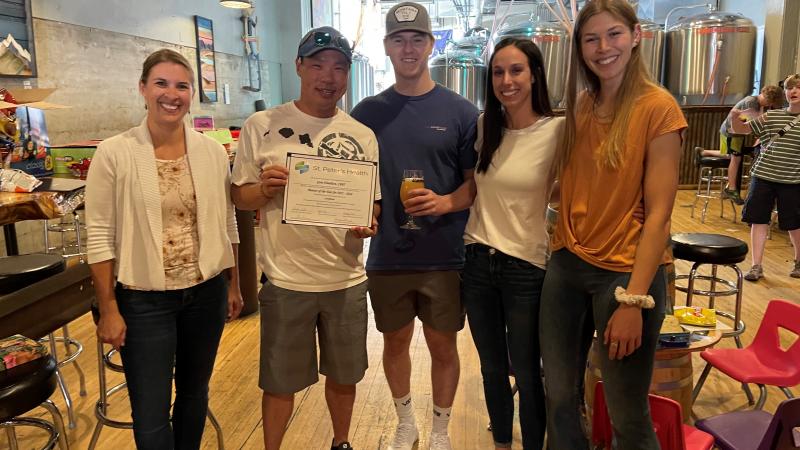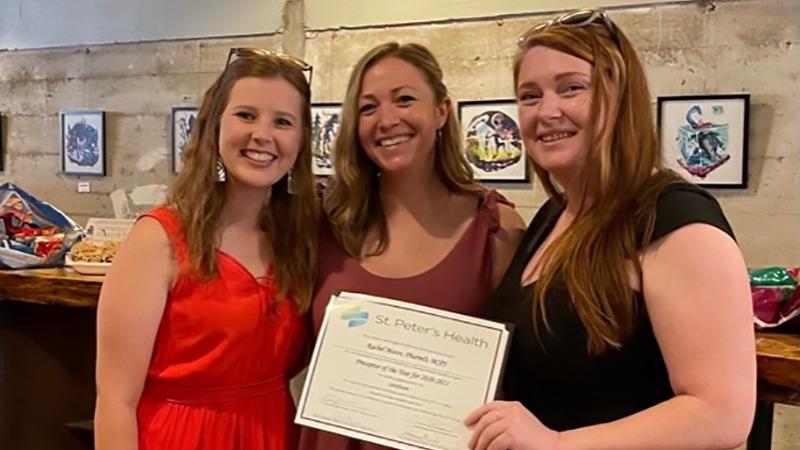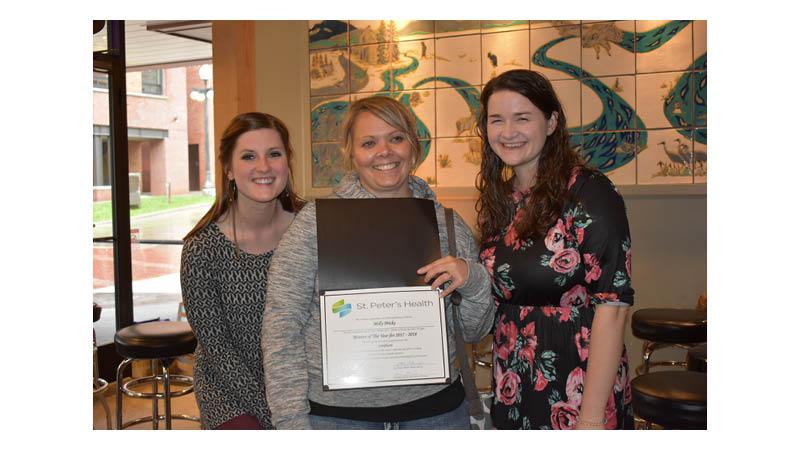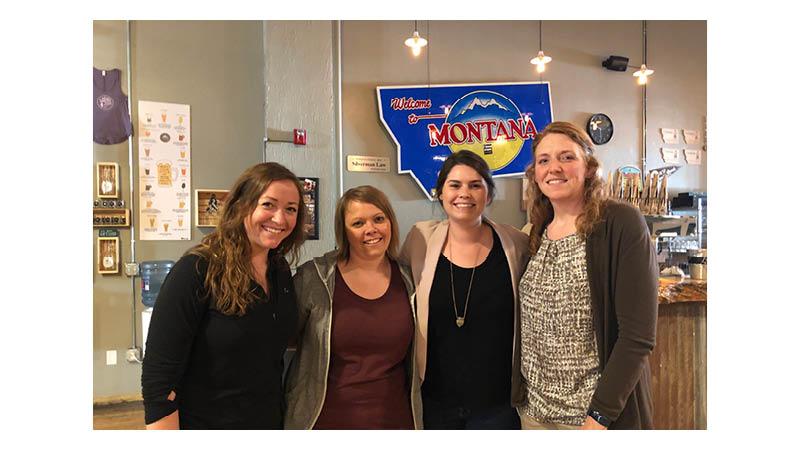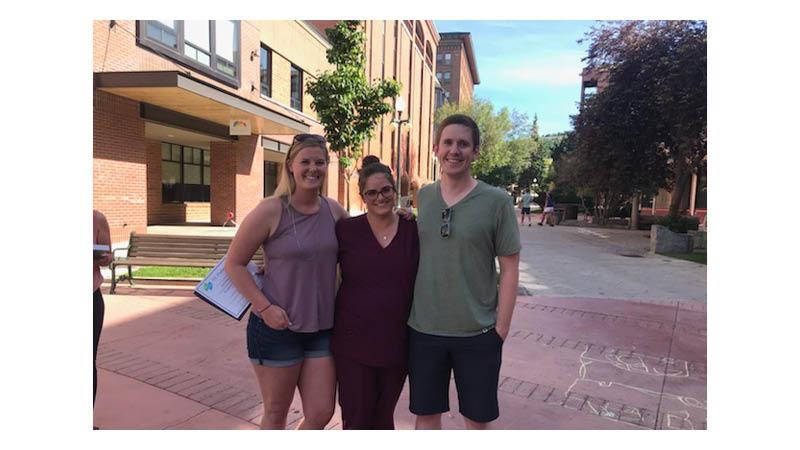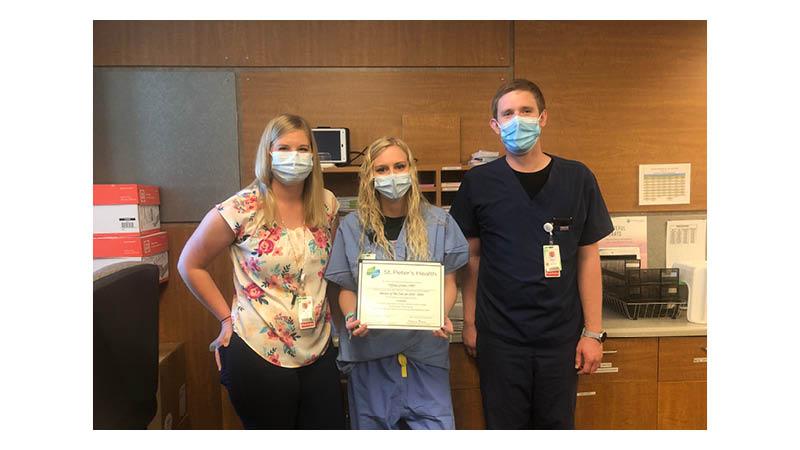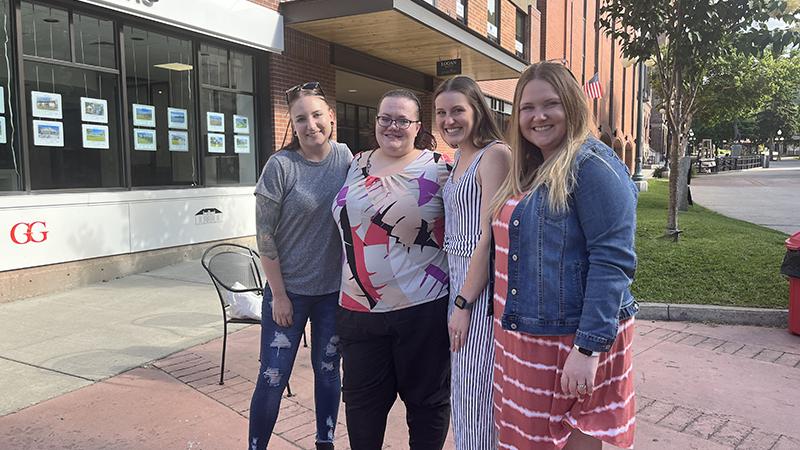Our department currently has more than 25 preceptors providing quality education to pharmacy students and residents. Preceptors work to create an encouraging learning environment while being generous with knowledge sharing. Residents will have the opportunity to learn from a pharmacist group that has various training and backgrounds.
A majority of our preceptors have BCPS certification, including specialty credentials in infectious disease, geriatrics, pediatrics and ambulatory care. Approximately two-thirds of our preceptors have completed residency training. Our preceptors work towards meeting and maintaining the rigorous ASHP standards set forth for preceptor qualification.
Preceptor Q&A
From your perspective, what value has the residency program and past residents added to our department?
- The addition of the residency program has infused our department with an excitement and energy about learning and pushing our limits. Having residents has infused a pervasive attitude of “how can I help?” or “what can I do to improve this practice?” or “I’ve never seen that before, let me look it up!”
- The residency program has made impacts in the areas of patient safety, expanding pharmacist’s scope of practice, and improving patient access to clinical pharmacy services. Resident research projects are responsible for our growth of clinical services including ambulatory care and transitions of care.
- We have developed so many services through the residency program. Also, being a preceptor to more advanced learners helps continue our education and evolve our practice.
- I appreciate the enthusiasm for learning that the residents bring every day. As a department, we have been able to complete some big projects with the help of our residents that have made significant impacts to the care we provide to our patients.
- It makes all of us continue to better our practice to make sure our residents receive education on the most recent evidence-based medicine and current guidelines.
What is a unique or exciting learning experience that you’d like to highlight from your rotation?
- AMS rotation: We have a lot of provider interaction as we review patients for appropriate antibiotic therapy. We touch most of the patients in the hospital daily and have a lot of collaboration with nursing, lab, other pharmacists, and providers throughout the system both during patient care and as we manage administrative issues.
- Primary Care rotation: Preceptors work as Clinical Pharmacist Practitioners (CPPs) which is a credential offered through the Montana Board of Pharmacy which allows for payers to recognize pharmacists as providers. Our clinics also utilize several Collaborative Practice Agreements to manage patients’ medication regimens.
- Rheumatology rotation: Residents will work directly with patients and have daily collaborative visits that include the pharmacist, patient, and MD. There is the opportunity to learn about the whole spectrum of rheumatic diseases not really covered in school and the positive impact pharmacists can make with high-cost and high-risk medications.
- Longitudinal Rotations: The longitudinal rotations provide practical experiences with navigating large-scale projects as well as learning how to enact change within an organization. I think it’s an awesome opportunity for residents to learn how to be a “change agent” by working with senior leadership and caregivers at the bedside to implement new processes.
- Internal Medicine Rotation: Residents will meet and work with the majority of the hospitalists for the whole hospital. Residents will also have the opportunity to build a collaborative rapport with many of the nurses and other members of the healthcare team.
- Critical Care Rotation: Residents are afforded the opportunity to participate in daily multi-disciplinary rounds. This allows them to work closely with several different health care professionals, thereby demonstrating the importance of working as a team to care for our patients.
In your opinion, what characteristics make a resident successful in our program?
- Our most successful residents are those who use everyday opportunities to learn. There are always things we can all be improving on, and when you accept and make the most of those opportunities, you grow exponentially in all directions. Be an optimist and an enthusiast for learning, it’s contagious!
- Individuals who are self-driven, organized, and enthusiastic to learn. Residents should also possess strong soft skills as forming relationships is a key part of an effective year.
- Residency is a time to soak up knowledge and gain as many experiences as possible. As a preceptor, I am looking for residents who recognize the unique opportunities a residency offers and take full advantage of the year to optimize his/her learning.
- Having a positive attitude will take you far in our residency program. Good time management and adaptability are skills for success.
- I believe successful residents need perseverance, a good work ethic, the willingness to be open to new and different ideas and a caring attitude. The more interest and hard work that is demonstrated by a resident, the more valuable the program is for the resident and our department.
How would you describe the culture of our program/department/institution?
- Our pharmacy department feels like a family – we respect and care for each other, but there is a fair amount of teasing and laughing that goes on. We work hard but we also play hard. Our hospital is close-knit and very collaborative, this is a place to work where the nurses and providers know you on a first name basis.
- We are a welcoming, progressive, innovative, supportive, and top-performing pharmacy department. St. Peter’s is a small community hospital which lends to it being a close-knit group.
- Being a relatively small, rural, hospital, we are lucky to have very close working relationships with the whole healthcare team. The nurses and physicians know the pharmacists well and trust us, so we enjoy a very progressive pharmacy practice.
- Our SPH pharmacy department is young, progressive, and excited to learn and teach.
- I believe we have a culture of high expectations, collaboration, caring and accountability. Professional growth is encouraged, and strong teamwork is essential. SPH cares about their employees and as a department we want our residents to succeed!
What do you enjoy about working at St. Peter’s Health?
- I enjoy the people here. The providers, nurses, management, and pharmacists come from a variety of backgrounds with amazing experience, so the end results are just a lot of really intelligent, hardworking people who provide care to our community because they want to be here. It makes working here and receiving care here very personal.
- The team environment! Everyone at St Peter's Health is always willing to pitch in their time, effort, and ideas, to make the best work and patient experience.
- I enjoy the autonomy of being a standalone, independent community hospital. This allows us to be nimble and enact rapid change.
- The caring and understanding that co-workers across all disciplines bring to work every day. I believe we have a great level of respect and understanding amongst our colleagues and this creates an environment that is very beneficial to our patients.
- My coworkers, mutual respect between pharmacy and other departments/providers, and the birthday desserts!
What do you enjoy about living in Helena?
- Helena has a little bit of everything – mountains, lakes, snow, theatre, music, and dance. Combine that with the friendly people and fresh air, and you have paradise. Just don’t tell anyone about it.
- Helena’s location. We are close to almost any outdoor activity imaginable. Helena is great for the outdoor enthusiast or adventurist.
- Helena is a small, safe community with a lot to do! I personally enjoy the mountain biking scene as there are hundreds of miles of singletrack that can be accessed from anywhere in town.
- Helena is centralized so great for quick trips; 1.5 hours from Bozeman, Great Falls, and Missoula. You can vacation at the nearby lakes (3 lakes within 20 minutes!).
- Helena has a small-town community feel with wonderful people.
- I love being able to access an amazing trail system within 5 minutes of town, and then walk downtown for local shops, brews, and food.
Technician and Preceptor Honorees
Each year the pharmacy residents choose a Pharmacy Technician and a Preceptor to honor as their Mentors of the Year. These people are selected based on their support of the residents throughout the year and for their commitment to teaching. Previous honorees include:
Technician Mentors of the Year:
- 2023-24: Isa Haase, CPhT
- 2022-23: Daphne Brook, CPhT
- 2021-22: Gene Hamilton, CPhT
- 2020-21: Marilyn Handyside, CPhT
- 2019-20: Tiffany Gruber, CPhT
- 2018-2019: Mindy Bricker, CPhT
- 2017-2018: Ilene Baumgardner, CPhT and Mindy Bricker, CPhT
- 2016-2017: Brianna Treat, CPhT
Preceptor Mentor of the Year:
- 2023-24: Heidi Simons, PharmD, BCCCP, BCPS (Antimicrobial Stewardship Rotation)
- 2022-23: Ceder Dorrington-Thacker, PharmD (Surgical Rotation)
- 2021-22: Ben Rush, PharmD, BCPS (Surgical Rotation)
- 2020-21: Rachel Moore, PharmD, BCPS
- 2019-20: Heidi Simons, PharmD, BCPS (Antimicrobial Stewardship Rotation)
- 2018-2019: Julie Petre, PharmD, BCPS (Critical Care Rotation)
- 2017-2018: Brad Hornung, RPh, BCPS (Behavioral Health Rotation) and Pam Melton, PharmD, BCACP (Internal Medicine Rotation)
- 2016-2017: Heidi Simons, PharmD, BCPS (Antimicrobial Stewardship Rotation)

